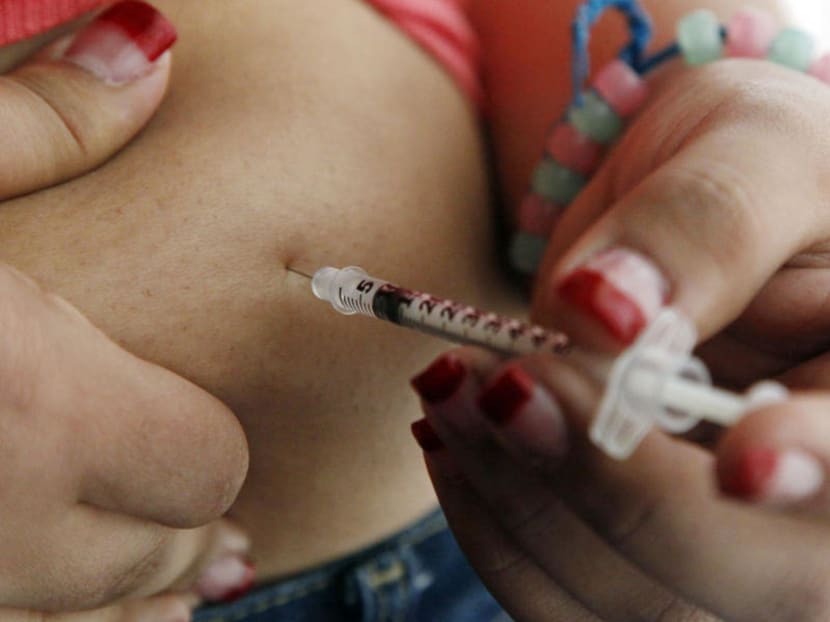Nemo project targets early diabetic kidney disease
SINGAPORE — She used to buy packets of sweets, chocolates and traditional nyonya kuehs and snack on them on the way home from dinner.

A teenager diagnosed with diabetes giving herself an injection of insulin. Diabetic kidney disease is a top complication of poorly controlled diabetes. AP file photo
SINGAPORE — She used to buy packets of sweets, chocolates and traditional nyonya kuehs and snack on them on the way home from dinner.
But when Madam Lyda Bakar, who has early diabetic kidney disease, found herself getting tired easily and dozing off on the sofa once too often, the 65-year-old put her mind to changing her diet.
She takes daily hour-long walks around her neighbourhood and sticks to simple dinners, such as bread and fish.
Once weighing a hefty 85kg, the scales tipped at 70.9kg at her last checkup.
“I used to not want to weigh myself because the results have always been negative. When I went for my last checkup, I cried when the doctors told me my weight dropped, and even asked if I was eating well,” said the retiree.
Mdm Lydia is one of the 10,500 patients enrolled in the Nephrology Evaluation, Management and Optimisation (Nemo) Programme, co-organised by the National University Hospital (NUH) and the National Healthcare Group Polyclinics (NHGP).
As part of the Nemo programme that started in 2011, diabetic patients with early diabetic kidney disease (DKD) are identified and evaluated — through urine tests for protein leakage — by a trained NUH Nemo coordinator.
After evaluation, NHGP doctors manage patients on subsequent polyclinic visits by optimising the dosage of drugs by working closely with the Nemo coordinator who monitor patients through telecare and remind them of medicine and appointment schedules.
DKD is a top complication of poorly controlled diabetes and may lead to End Stage Kidney Disease (ESKD), where less than 15 per cent of the kidney function is present, which could lead to death unless the patient goes through dialysis or kidney transplantation. Singapore has the second highest incidence of ESKD in the world due to diabetes.
With one in three Singaporeans likely to have diabetes in their lifetime, Health Minister Gan Kim Yong declared war on the disease in April.
About 3,300 patients have completed the Nemo programme, among which about half have either no more protein leakage in their urine or a significant decrease of leakage.
“I’m happy that they guide me and watch my progress. It really boosts my morale, plus I live alone so I don’t have people to talk to. But the coordinators really explain to you what you need to do,” said Mdm Lyda.
Professor A Vathsala, director of the Nemo programme and senior consultant at the division of nephrology at NUH, noted that kidney disease is a “disease multiplier” that greatly increases the risk of cardiovascular disease, stroke and other vascular disease.
She added: “The benefit of preventing kidney disease progression are far more reaching than kidney disease alone.”
Correction: In an earlier version of this story, we reported that the Nemo programme was started in 2013. This is incorrect. It was started in 2011. We apologise for the error.






